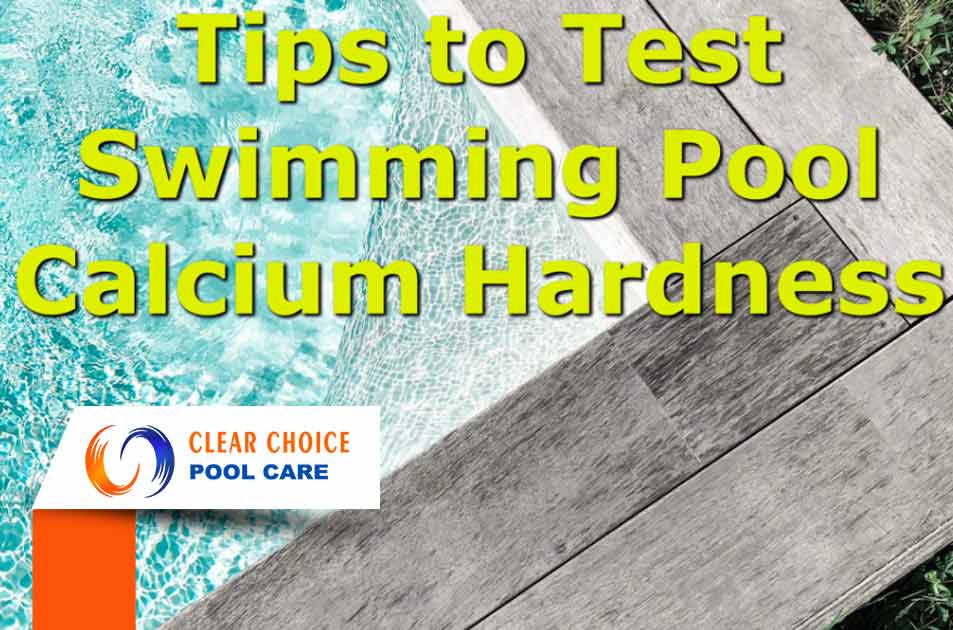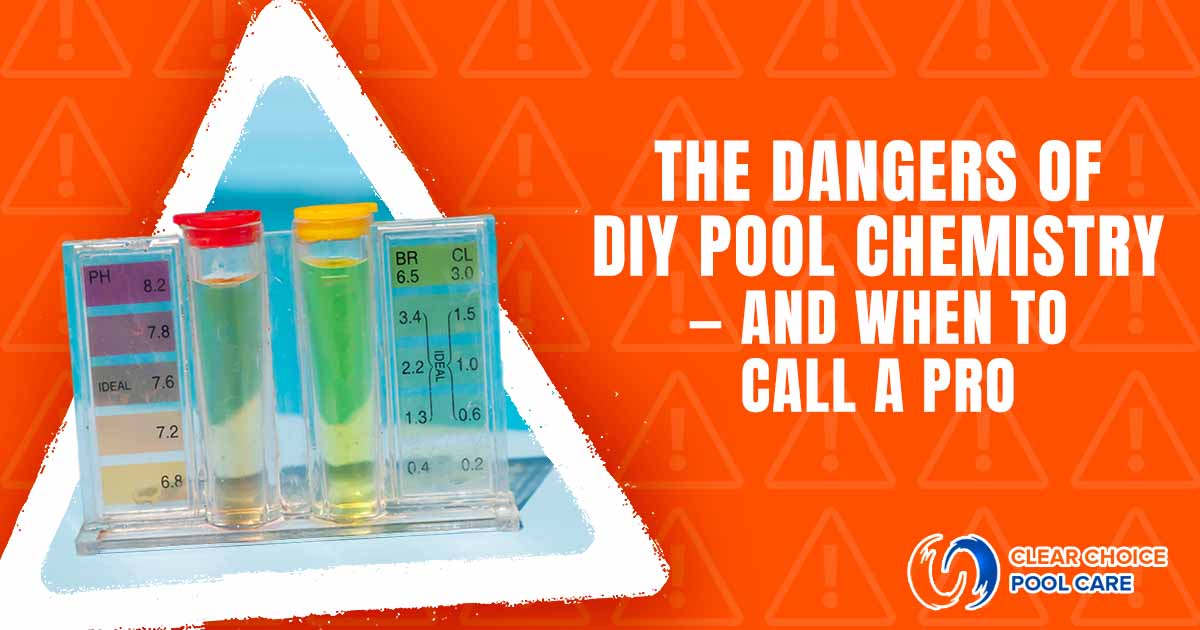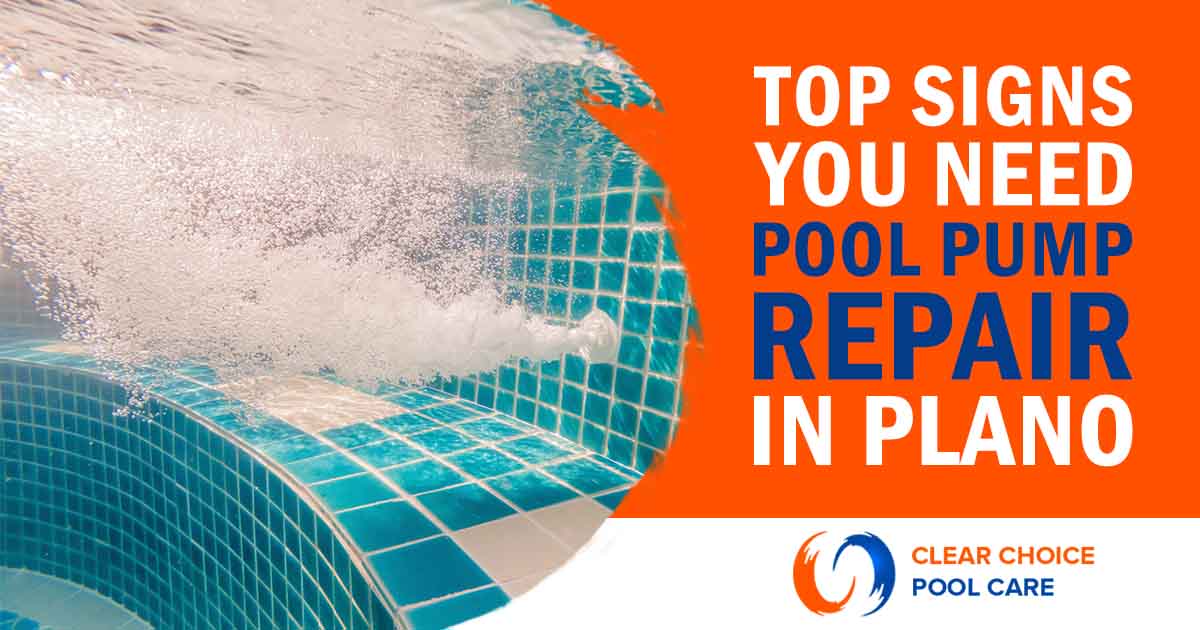If you’ve owned a pool for quite a while, you may not know how to test swimming pool calcium hardness. Swimming pool calcium hardness, sometimes just called water hardness, is an indicator of how much calcium buildup is in your pool. One day you may go out for a swim and notice a white substance on the side of your pool. This is scale buildup. Scale buildup usually occurs when your pool’s water goes through drastic changes in temperature. As water evaporates in warmer weather, it leaves behind some of the chemicals and minerals in the water. For swimming pools, scale build up is an indication of very high calcium levels in the water. You can reduce scale buildup by maintaining proper levels of calcium in your water.
Why Test Swimming Pool Calcium Hardness?
You may test your pool for things like pH and chlorine, but it’s also important to test swimming pool calcium hardness. Testing for calcium levels in a pool is important because excess calcium in a pool’s water can cause scale buildup. Scale is a hard substance that can cause damage to your pool’s lining and pumps. Sometimes, scale buildup becomes so bad that your pool may need a resurface or repair.
You may be asking, “Why not just get rid of all the calcium in the water to prevent scale?” While excess calcium does cause scale buildup, too little calcium can damage the plaster around a pool and even the concrete. This is because water with no calcium likes to absorb calcium from any material it can. Plaster and concrete contain small amounts of calcium, and non-treated water will “steal” their calcium. In the long run, this will cause the plaster to crumble and concrete to wear away. You will need to test your pool’s hardness level at least once a month.
Proper Level of Calcium Hardness
Before you test swimming pool calcium hardness, it’s important to know what level calcium should be in your pool. Most pool owners will have an owner’s manual that will tell them the specific pool hardness their pool needs to be at. However, a good rule of thumb for those who don’t have an owner’s manual is calcium levels should be between 200 and 400 parts per million. That’s quite a bit compared to the water we drink every day.
Normal tap water usually only has 40 to 80 parts per million of calcium in it. Clear Choice Pool Care & Maintenance recommends playing it safe with calcium levels and going for a flat 300 parts per million if you don’t know the exact level of calcium you need. Maintaining the proper calcium levels will also help keep things like ladders and rails in your pool safe as well. Low calcium levels can actually damage metal objects!
How to Test the Calcium Hardness of Your Swimming Pool
There are many ways to test swimming pool calcium hardness. The first method for testing pool water calcium levels is to purchase testing strips. They are similar to the testing strips used to test pH. You can find these testing strips at pool supply stores and hardware stores. To use them, all you need to do is dip the strip in water and wait for it to change color. Testing strips will come with a color scale that will indicate how hard your pool’s water is.
Another method to test swimming pool calcium hardness is to purchase a dropper set. A dropper set is similar to a strip testing, but instead of strips to indicate calcium levels, they use a liquid. To use these tests, you will need to remove a certain amount of water from your pool. Once you remove the water, you will need to drop the chemicals that come in the kit into the water. The water will change color similar to the strip test, and you will need to read a color scale to find out what the calcium level of your pool is.
The final method to test calcium is to purchase a device that tests water hardness. These are the easiest option for testing water hardness, but there is a tradeoff. These devices can get really expensive. However, they will save you time and money in the long run. To use these devices, you simply need to dip them in your pool’s water to take a sample.
How to Adjust Calcium Hardness of Your Swimming Pool
Now that you know how to test swimming pool calcium hardness, it’s time to adjust it to the appropriate level. Unfortunately, adjusting the calcium level of a pool can be quite difficult depending on the situation. If levels are too low, you can simply add more calcium to the water. However, if they are too high, it’s a different story. When levels are too high, there are several methods to reduce hardness.
The easiest method is to drain your pool of some water and replace the drained water with softer water. If you live in an area with hard water, it can be difficult getting soft water for your pool, but Clear Choice Pool Care & Maintenance can help you with that. Another, more time consuming, method is to remove calcium by raising pH. This method can be dangerous if not done properly so we recommend avoiding it if possible. This method involves raising the pH of the pool to very high levels.
A high pH level will cause the calcium in the water to fall out, and then, you will need to vacuum it. Finally, you will need to lower the pH and add calcium back to the water.
Clear Choice Pool Care & Maintenance Will Test Swimming Pool Calcium Harness For You
It’s a pain to test swimming pool calcium hardness, but we can help you. We offer a weekly pool service that will ensure your pool never has the improper calcium levels. And if it does, we’ll adjust them for you so you can spend less time maintaining your pool and more time swimming in it. Having proper chemical and mineral levels in your pool will make sure your pool is not damaged, and we would be happy to help you.





